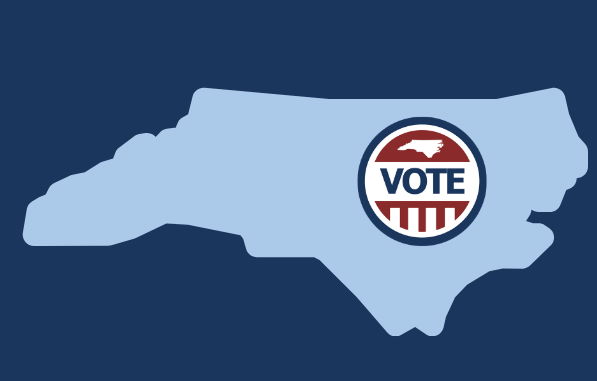Deception & Misdirection
Tracing Mark Zuckerberg’s Election Investment in North Carolina—UPDATED


Jan. 2022 Update: This report was written with the best information available in 2021 but is now out-of-date. For updated analysis using CTCL’s latest disclosures, see North Carolina in “Shining a Light on Zuck Bucks“
Editor’s note, May 4, 2021: The report and data set were updated based on new information on CTCL grants provided to CRC through a FOIA request by Martin Oakes, former commissioner for Lincoln County, NC. The original blog post was published on January 25, 2021. June 10, 2021: Updated spreadsheet to include all counties, including those which did not receive CTCL grants.
While much of America was focused on the voting irregularities in 2020, many missed the year’s other big story: How one billionaire attempted to privatize the election.
In the months leading up to the 2020 election, Facebook founder Mark Zuckerberg and his wife, Priscilla Chan, dumped an impressive $350 million into a Chicago nonprofit, the Center for Technology and Civic Life (CTCL), to funnel to local elections officials for COVID-19 “relief.” Overnight, this heretofore sleepy group (2018 revenues of $1.4 million) became an activist juggernaut with the means to effectively manage the election in numerous cities and battleground states across the nation.
Thanks to new FOIA information provided by Martin Oakes, former Lincoln County, NC, commissioner, the Capital Research Center has traced nearly $5.4 million of CTCL’s “Zuck bucks” to North Carolina as part of our series investigating the role of left-wing nonprofits intervening in the 2020 election. That includes a $1 million grant to the state board of elections.
For more of our work, see our reports on Georgia and Pennsylvania, Nevada and Arizona, Virginia, Texas, and Michigan and Wisconsin.
Trouble in the Tar Heel State
North Carolina is a perennial battleground state for Republicans and Democrats. President Donald Trump won the state by 74,000 votes in 2020, down from his over 177,000 vote margin over Hillary Clinton in 2016.
CTCL gave grants to at least 35 cities and counties in North Carolina, according to an online list of “preliminary” grants, although the specific grant amounts aren’t detailed. Two counties, Guilford and Moore, were awarded grants but reportedly did not spend the funds.
- Joe Biden won 26 of North Carolina’s 100 counties, accounting for 65 percent of his overall votes in the state and containing just over half its entire population.
- Of the 26 counties Biden won, CTCL funded 9. These 9 counties alone provided Biden with over 923,000 votes, or roughly one-third of all his votes in North Carolina.
- Of the 74 counties that Trump won, CTCL funded 26. These 26 provided Trump with over 654,000 votes, or less than 24 percent of his votes in the state. They also contain only 18 percent of North Carolina’s total population.
- No county that received CTCL funding flipped from Trump to Biden or vice versa. Rather, CTCL grants “greased the skids” for impressive growth in voter turnout—particularly for Biden.
- Across all CTCL-funded counties, Biden improved his turnout over Hillary Clinton’s 2016 performance by 255,125 votes, an increase of 25 percent. Trump increased his turnout in those same CTCL-funded counties by 170,519 (an 18 percent increase).
- Overall, we see a median increase of 21 percent for Biden and a 17 percent increase for Trump in counties funded by CTCL.
- Key Biden gains were concentrated in CTCL-funded counties that Clinton won in 2016: Greensboro in Guilford County (25,857 votes, a 17 percent increase), Durham in Durham County (25,905 votes, a 22 percent increase), Asheville in Buncombe County (21,578 votes, a 29 percent increase), and Raleigh in Wake County (94,983, a 32 percent increase). In only one of these heavily populated counties, Wake, did Trump’s improvement over 2016 exceed 10,000 votes.
- Elections officials in CTCL’s most richly funded county, Durham, received $1.5 million from CTCL—that’s $4.56 for every man, woman, and child living there. Durham County broke heavily for Biden: nearly 145,000 votes, almost 4.5 times as many as Trump won (32,000). That’s nearly $10.14 for every Biden vote in the county.
- Wake County, CTCL’s second-most richly funded county and the largest in the state, received $1 million, the equivalent of $2.83 for every Biden vote, or $0.90 cents for every person living there. Wake County is a Democratic stronghold, earning Biden more than 393,000 votes—his largest grab in the state and over 167,000 votes more than Trump earned there.
- Biden’s most impressive gains over 2016 Democratic turnout were also in Wake County: A whopping 94,983 additional votes—a 32 percent increase over Clinton’s figures. Biden netted over 393,000 votes in a county that contains 1.1 million, or 35 percent of its entire population. (Trump, who lost Wake in 2016, gained only another 32,590 votes in the county.)
- Orange County, just west of Durham, received $292,255 from CTCL, including an additional $75,000 from CTCL in January 2021, for a total of $1.97 per resident—a record high in North Carolina. While Trump managed to increase his gains by 10 percent over 2016 turnout (compared to 8 percent for Biden), Biden crushed his opponent in Orange County by 63,594 votes to 20,176.
Privatizing the Election
What’s clear is that CTCL’s grants likely had a similar effect as targeted political advertising—bolstering support for Biden in exactly the key places he needed to win North Carolina, but in this election the efforts fell about 75,000 votes short of flipping North Carolina blue.
What we saw was an attempt by an ideologically motivated billionaire to privatize an election—and a deafening silence from the left-leaning media.
Appendix
CTCL grant data for North Carolina, updated in June 2021 to include all counties.



